Dion DiMucci: "Blues is a tradition. But it’s a living tradition. It’s not dead. It’s a handing-down and passing-on"
The blues survivor talks touring with Buddy Holly, meeting Howlin' Wolf, and his star-studded new album, Blues With Friends
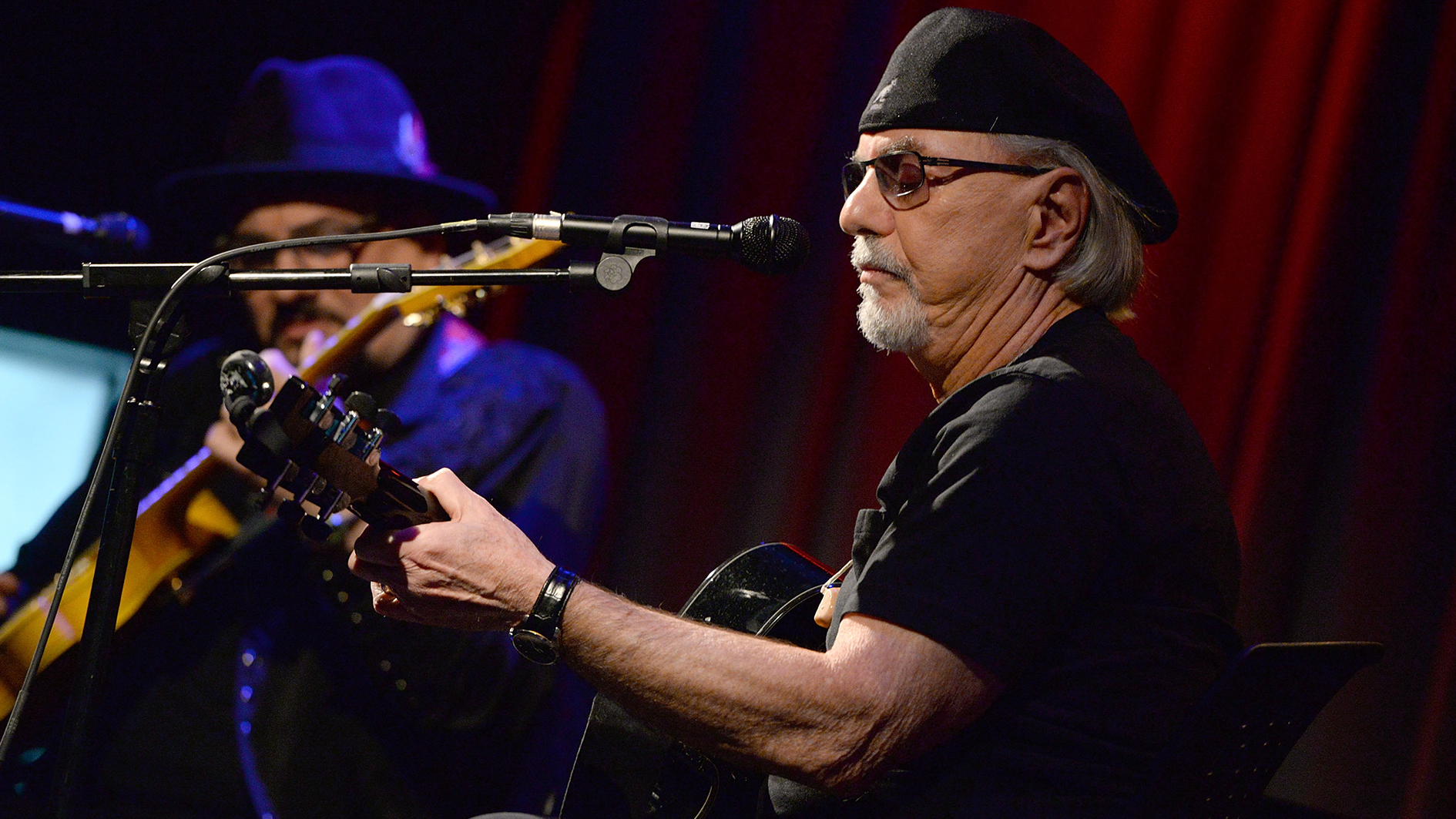
Coming up on the Bronx’s mean streets as the poster boy of '50s doo-wop was just the start for Dion DiMucci.
Spared from the 1959 plane crash that killed tour-mate Buddy Holly, then seduced by the blues, his six-decade path has led through treacherous Southern juke joints, crippling addiction, rebirth and his late-period status as a rock ’n’ roll founding father.
Now, with the release of new solo album, Blues With Friends – its all-star tracklisting featuring guitar luminaries from Jeff Beck to Joe Bonamassa – the 81-year-old New Yorker’s influence and legacy are beyond doubt.
Here, he delves into the many stories that forged a career unlike any other...
Love at first strum
“My uncle got me a Gibson L-1, that’s what I learned on. I have a picture of myself holding that guitar at 12 years old. My God, I wish I still had it today. Once I’d learned that first song – Hank Williams’ Honky Tonk Blues – you couldn’t get me away from it.
"My mother tried to get me out of the house, but I just wanted to learn another Hank Williams or Jimmy Reed song. Then, when I started getting a little better, I saw the J-200 and saved up the $350 for that. Man, that was the guitar. I just had to have one.
"So I was a pretty weird kid. I was reading Saint Thomas Aquinas, listening to Jimmy Reed. How freakin’ weird could you get for a Bronx Italian neighborhood kid, y’know?”
Get The Pick Newsletter
All the latest guitar news, interviews, lessons, reviews, deals and more, direct to your inbox!
Wrong side of the tracks
"The Bronx was a tough neighborhood. You learned to defend yourself real early on. I wouldn’t consider myself a tough guy. I’m a poet, I’m a singer, I’m an artist. But I had an attitude. You had to. I belonged to a gang. But inside me, I wasn’t that guy.
"I grew up across the street from George’s Bar and Grill, and in summer they had all these gangster guys hanging out, with tank tops, tattoos and gold chains. So those characters deserved a song written about them, which ended up being The Wanderer [1961].
“Did I have any run-ins? Well, once they heard the kind of music I was making, they left me alone, because they didn’t think anything of it. They wanted to hear Italian music, like Jimmy Roselli or Al Martino. They thought I sounded like a wet dishrag."
Have guitar, will travel
“Somebody was asking me recently about the great '50s doo-wop singers, and how come I went on and they didn’t? It’s because I played guitar. I think that’s why I’m still relevant.
"In 1957, I got the Belmonts together from the best doo-wop singers in my neighborhood. And when we got a hit record, they would tell me, ‘Lead singers don’t play guitar.’ But I played on all my records. The Wanderer, Ruby Baby, Drip Drop, Abraham, Martin And John, Runaround Sue, Teenager In Love – everything.
"So when guitars came to the fore in the '60s, and doo-wop kinda took a back seat, it was an easy thing for me. It didn’t even feel like a transition."
On the road
"Touring with Buddy Holly in 1959 was the best experience for a 19-year-old kid like me. It was amazing to be sat at the back of the bus with guitar players like Ritchie Valens, who was honing his skills as a lead player.
For a 19-year-old kid like me, it was amazing to be sat on a bus with players like Ritchie Valens
"There’s a song I wrote about that tour called Hug My Radiator, because the bus was so cold, I was thinking, ‘When I get to my hotel, I’m gonna hug my radiator.’
"Offstage, Buddy was reserved: a stately, refined Texan, almost like an accountant. But when he put that Strat around him, walked out on stage, took the stance and hit the first chord, it was like, ‘Hold on to your ass.’ He let it all out.
"I was on the tour for two weeks with these guys, enjoying myself like crazy. Then, all of a sudden, the rug is ripped out from under my feet. I was relieved I didn’t take the flight that killed Buddy and the others.
"Like, ‘Wow, I could have just been wiped off the planet.’ But there were mixed emotions. You missed them. You had questions. Why am I here? I was puzzled for a long time."
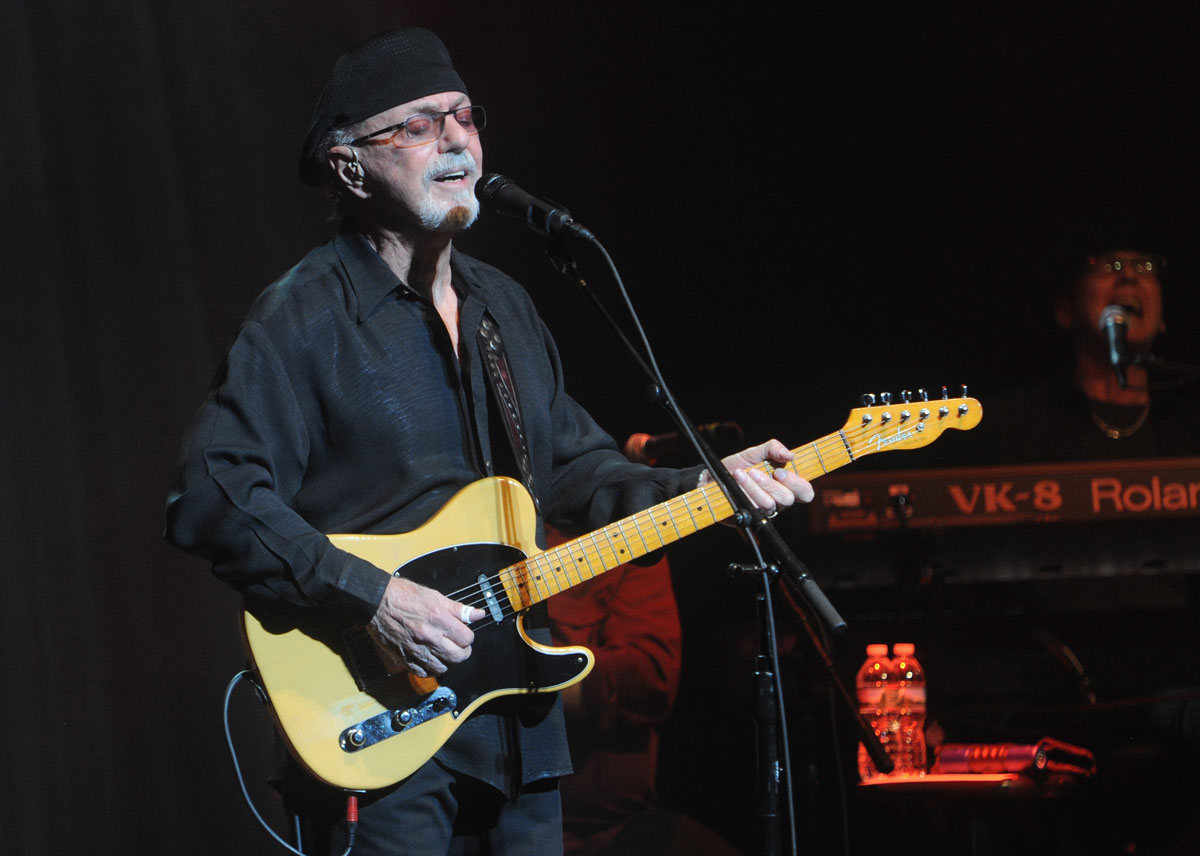
First time I met the blues
"I was the first rock ’n’ roll singer signed to Columbia. John Hammond Sr [label exec] always told me, ‘You have a flair for the blues,’ ever since he heard me singing Drip Drop, sitting on the piano bench with Aretha Franklin.
"To me, blues was like connecting the dots of what I’d already heard, from T-Bone Walker to Chuck Berry.
"So the British Invasion didn’t feel like a takeover and it wasn’t frustrating to me. It was more like the British Infusion. They were recognizing stuff that was hiding in plain sight, like American roots music – and I was into that.
"I remember, Pete Townshend once came bursting into the studio to say he liked my version of Spoonful. It just goes to show, you never know who’s listening.
Howlin’ Wolf was enormous. He was like, 'Where d’you learn to play like that?' I thought, 'If I have the wrong answer here, he’s gonna kill me'
"He said, 'Roger and I think that’s one of the greatest records ever made. How did you do it?’ And I told him, 'I had this Gibson Byrdland and I threw some of that Bo Diddley tremolo on there...'"
Who's afraid of the Howlin' Wolf
"When I was 17, my parents had a TV and I would watch Chuck Berry, Bo Diddley and Little Richard while dancing across my living room floor, y’know? And then, within six months, I was working the Brooklyn Fox with them and in their dressing room.
"Bo Diddley was comfortable to be with. Little Richard, I knew a side of him that was very calm and thoughtful. Chuck Berry was a little more combative. He had a definite edge because of the way he was treated. I guess those bluesmen had to be tough to survive like they did.
"I remember meeting Howlin’ Wolf, too. He was intimidating. The guy was enormous. He was like, 'Where d’you learn to play like that?' I thought, 'If I have the wrong answer here, he’s gonna kill me.' But when you told him you listened to Lightnin’ Hopkins, he’d say, 'Oh, good. I listen to him, too.'"
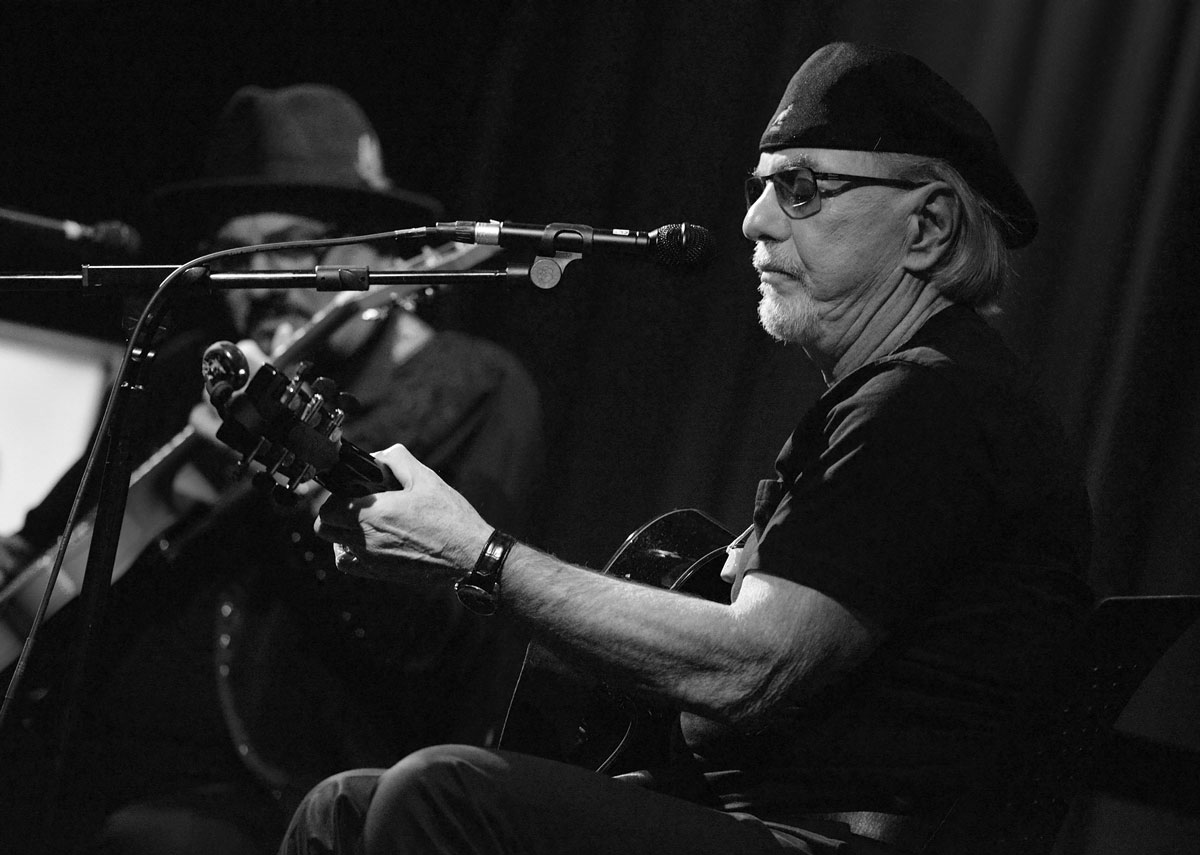
Black and white
"There’s a song on the new album – Song For Sam Cooke (Here In America) – but I wrote it a long time ago. It’s about travelling around the South with Sam Cooke. He’d take me around the clubs, to see James Brown when nobody knew who he was. He protected me.
"I saw Sam in a lot of situations, but he never got angry in the face of racism, never blew up, never got edgy. Me, I got angry. I’d be thinking, 'Oh, he’s gonna punch this fucking guy out.' But no. He’d just mirror something back to them, to show them how stupid they were. Looking back, I realize he was the smartest guy in the room."
In Bob we trust
"When Dylan came to Columbia in the mid-'60s and I went to the first session, I thought somebody had let him out of a cage. It was like he’d just got loose, y’know? He was on fire. He stepped up to the mic and he was off and running, man. You had to catch up to him.
"Our friendship wasn’t like I went out to lunch with him every day, but it’s stayed as an appreciation for each other along the way. It was crazy how he came to write the sleeve notes for Blues With Friends.
"There’s a lot of people who believe Dylan is the greatest songwriter of the 20th century and beyond. When I think of him, I think of those things, too – but he’s also a great blues singer.
"So I thought, 'I’m gonna send this album to him. He knows what the hell he’s talking about...'"
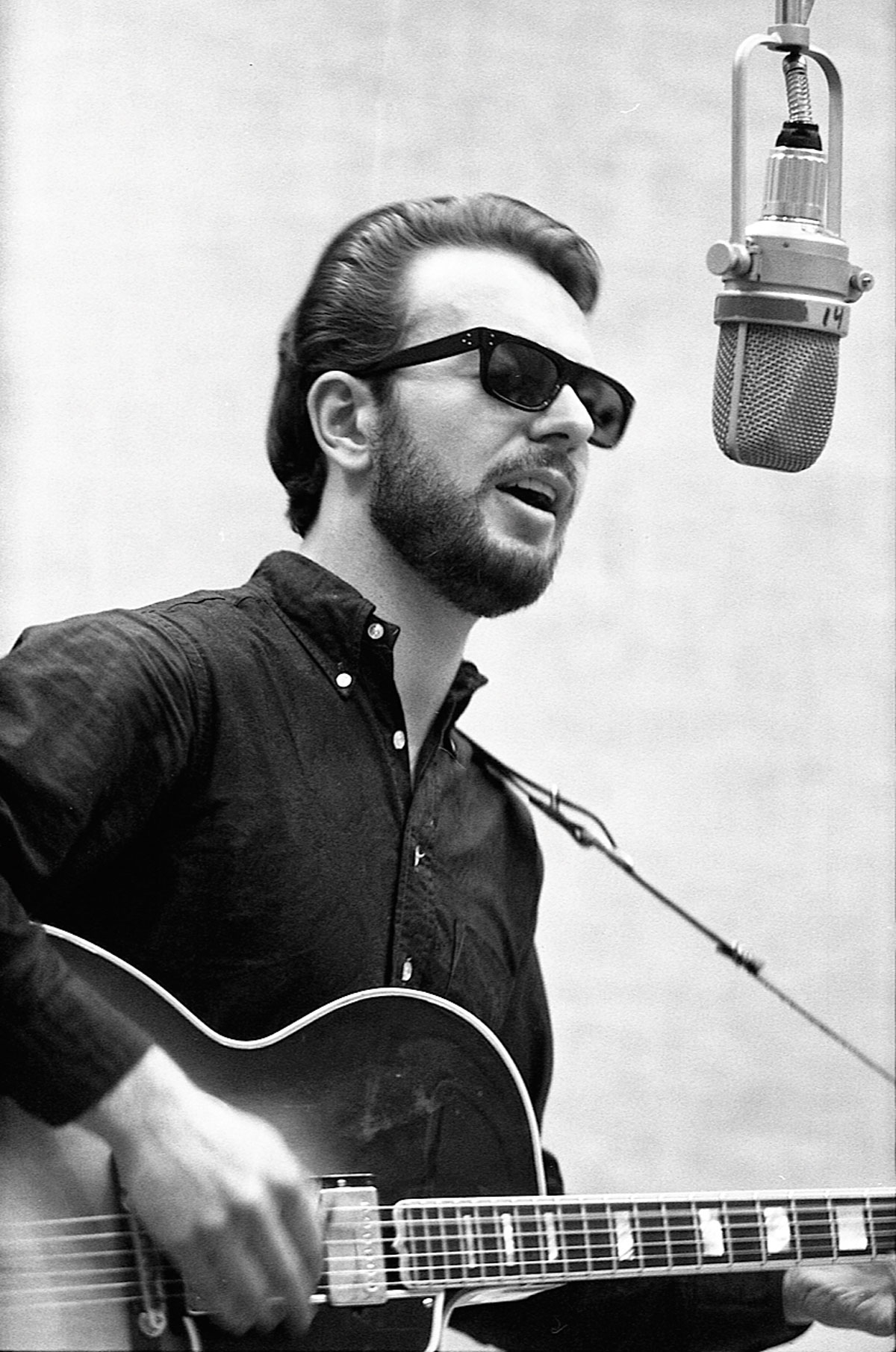
The drugs don't work
"I love life but it’s not without challenges. The worst time was when I was on drugs in the mid-'60s. Y’know, I was using heroin and it wasn’t good. My friend, Frankie Lymon, we used to do drugs together and he died of an overdose in February 1968.
"Man, it just made me reevaluate where I was. I said a few prayers and I changed. I haven’t had a drug or a drink since. I’m a better musician without it. I don’t think any creativity comes out of drugs or drinking.
"It can seem like that because it kind of frees you up a little. You think, ‘Oh, this is making me creative.’ But no, I don’t think so, personally. I think it comes from the well of creativity. You gotta get under the spout where the glory comes out – not in the sewer with the bullshit."
Larking with you
When Lou came along, I guess everything was already rebelled against, so he had to push it out of the envelope. He liked to stir people up. But it was for a good reason
"Lou Reed inducted me into the Rock & Roll Hall Of Fame in 1989. I loved him. When Lou came along, I guess everything was already rebelled against, so he had to push it out of the envelope. He liked to stir people up. But it was for a good reason.
"He’d poke around, see what was real and what was bullshit. I’ll tell you, Lou was really into his guitar sound. I think, three-quarters of the time I spent with him, that’s what he talked about.
"He had a big, metallic pedalboard made for him – about 3ft long – and it had about five buttons. One was ‘Distortion’, one was ‘More Distortion’, one was ‘Mega Distortion’, one was ‘EpicDistortion’..."
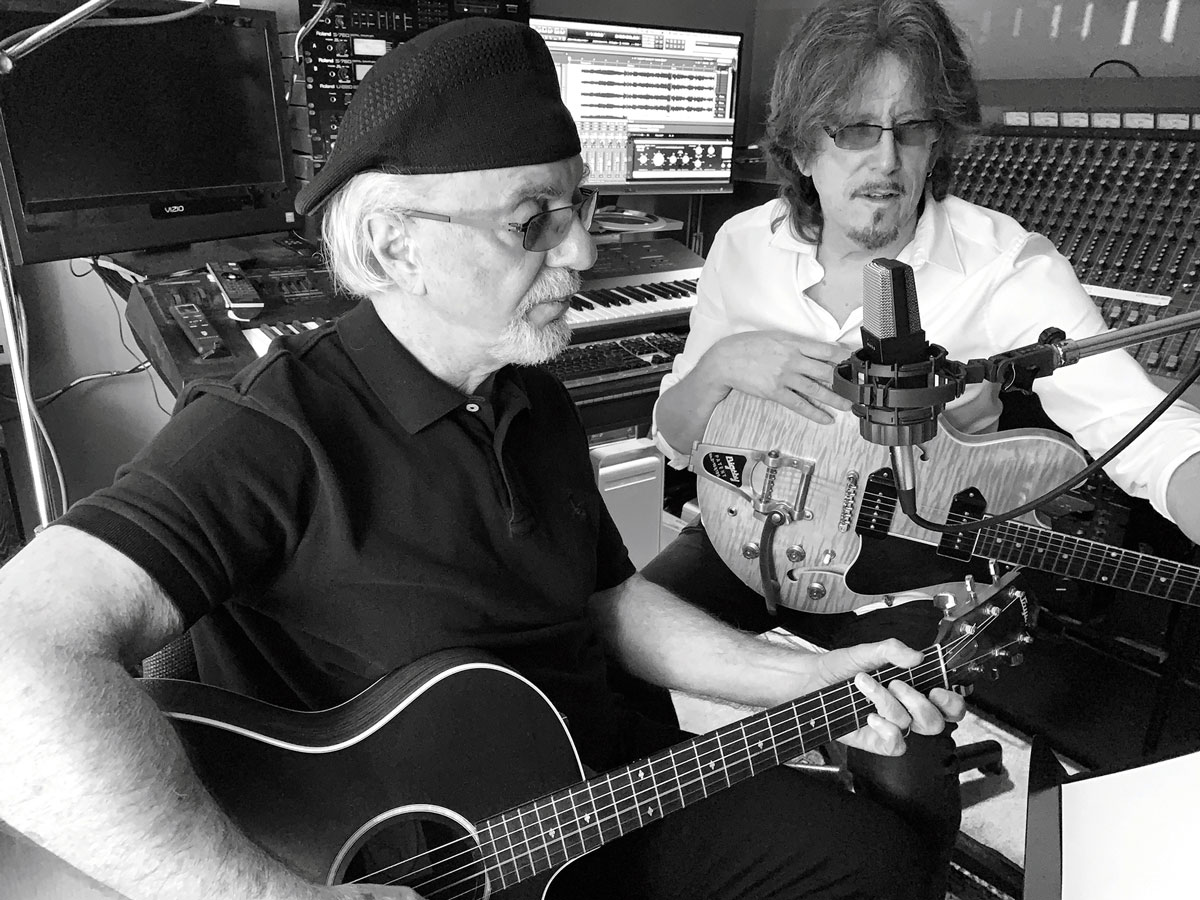
With a little help from my friends
“I couldn’t have planned my new album if I’d tried. Joe Bonamassa’s manager lives five houses from me, and one day Joe comes over to mine, hears Blues Comin’ On and says, ‘Man, I want to play on that.’
"Be my guest, y’know? He was the catalyst for the whole thing. After that, I thought it’d be great if I could get Billy Gibbons to play on Bam Bang Boom. It was like casting for a movie. I thought, 'Who could play on this ballad, Can’t Start Over Again?' Jeff Beck is the only guitar player who can make me cry, and when he said yes I just started going for it.
You haven’t lived until you’ve sang with Van Morrison. I’m just glad I experienced it before I leave the planet
"The fun part was, all the guitar players, they’re so distinctive. Like Brian Setzer, I wouldn’t even know how to ask him for what he played on Uptown Number 7. Or Sonny Landreth on I Got The Cure – he’s just stunning, like a violin virtuoso.
"I’m a good player. But I’m not an ensemble guitar player, like some of these guys. Take Bonamassa. If you moan, holler or yell somewhere – he responds, he’s right there with you.
"I don’t know how the hell his mind works. And I’ll tell ya this – you haven’t lived until you’ve sang with Van Morrison. I’m just glad I experienced it before I leave the planet."
They don't make 'em like they used to
"I would say that old guitars play better, from experience. That gold guitar on the album sleeve, I used on a lot of the songs. Homer Haynes – from the duo Homer and Jethro – originally had it made by Fender. It’s a ’57 Strat, with gold hardware, gold pickguard, just standard pickups. It’s really wild to play it. You can always find songs in a guitar like that.
"When I pick up some of the guitars that my producer, Wayne Hood, has in his studio, I feel like double the guitar player I am. He has, like, a ’62 and a ’56 Strat. I don’t know what the hell it is about those guitars.
"I think it’s maybe that the fretboard is flat and he has the back of the neck sanded down, so it plays like butter.
"I was using different amps, because I went into different studios. But they were mostly Twins and Deluxes, whatever the engineer had that was real primo."
The future's bright
"Blues is a tradition. But it’s a living tradition. It’s not dead. It’s a handing-down and a passing-on. Just listen to what Samantha Fish played on What If I Told You. Forget about it.
"She’s a great example of the fire and the passion – if I ever put that much emotion into anything then I wouldn’t be able to walk for three weeks. I felt like she was ripping my heart out without anesthesia, and I liked it.
"It just shows you how a young person – she’s about 30 years old – can play this music. Y’know, blues don’t get tired. It’s the person that gets tired, the musician that gets tired. The song never gets tired.”
Dion’s Blues With Friends is available now via Keeping The Blues Alive Records.
Henry Yates is a freelance journalist who has written about music for titles including The Guardian, Telegraph, NME, Classic Rock, Guitarist, Total Guitar and Metal Hammer. He is the author of Walter Trout's official biography, Rescued From Reality, a talking head on Times Radio and an interviewer who has spoken to Brian May, Jimmy Page, Ozzy Osbourne, Ronnie Wood, Dave Grohl and many more. As a guitarist with three decades' experience, he mostly plays a Fender Telecaster and Gibson Les Paul.
“I didn’t use any amps. The pedal that saved me was the Boss Super Overdrive”: How Yves Jarvis made 2025’s most exciting experimental record so far with a $50 Explorer knockoff and an unbelievably weird tuning
“Chess was cussin' when I got to the session with Muddy. But when he heard me, he just sat there with his mouth open”: Leonard Chess wanted to cash in on the folk boom, and asked Muddy Waters to bring him an old acoustic bluesman. He brought him Buddy Guy



![[from left] George Harrison with his Gretsch Country Gentleman, Norman Harris of Norman's Rare Guitars holds a gold-top Les Paul, John Fogerty with his legendary 1969 Rickenbacker](https://cdn.mos.cms.futurecdn.net/TuH3nuhn9etqjdn5sy4ntW.jpg)







